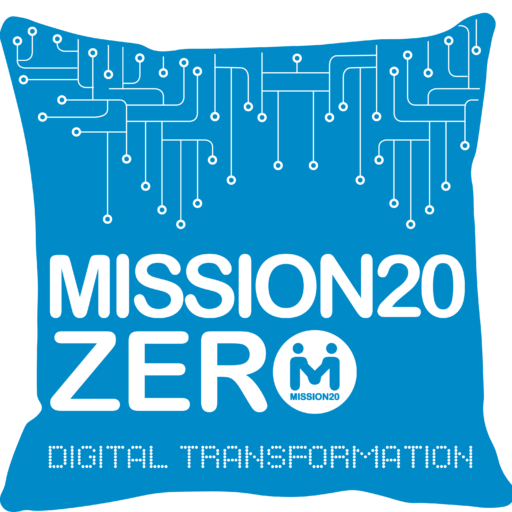1. WHICH VENDOR FITS YOUR COMPANY BEST?
The number of partners, vendors, and suppliers offering ERP solutions is immense. Each has its own unique approach, methodology, and offerings. You must determine if their offerings fit YOUR needs and not let them dictate to you based on their approach.
2. HOW WOULD YOU DEFINE YOUR BUSINESS PROCESSES?
An ERP solution is really a tool to assist in streamlining business processes. You need to understand and categorize your business processes. Do you have straightforward processes and are you willing to change and update your processes based on the solution you choose? Do you have complex processes that require a highly configured solution? Whatever the answer, you will need a solution that fits appropriately.
3. WHAT ARE YOUR TRUE GOALS AND OBJECTIVES?
This seems simple, but you do need to define goals and objectives for the project. For example, go live by a certain date with certain functionality or obtain a specific level of cost savings through streamlined processes. If you begin with a goal in mind, it will be much easier to achieve!
4. SHOULD YOUR ERP SYSTEM BE INDUSTRY-SPECIFIC?
Many companies think they are incredibly unique, but the reality is that their product or service offering is unique, but the way they process transactions is the same as millions of other companies. That being said, you should seek a solution that has companies in your same industry as satisfied clients. Just don’t make that the sole decision criteria.
5. HOW MUCH CUSTOMIZATION WILL YOU NEED?
The decision to customize or stay with out-of-the-box functionality is one of the most critical decisions of the ERP process. Today, we see more companies trending back to out-of-the-box functionality as much as possible. Companies certainly configure screens and processes, but wholesale customizations to the system are not that common.
6. HOW MUCH CAN BE DONE WITH STANDARD FUNCTIONALITY?
When you are choosing an ERP solution you have to determine whether you are willing to update and/or change your internal processes to take advantage of standard functionality. Many organizations find that they haven’t updated processes in years and take advantage of the opportunity to review and improve business processes.
7. WHERE DOES CRM FIT INTO THE PICTURE?
An ERP solution is a great transactional level tool and reporting solution, but where does a Customer Relationship anagement solution fit into the picture? Will it be part of your ERP solution, or will you use a different solution and integrate it to your ERP solution?
8. WHAT OTHER SYSTEMS WILL YOU HAVE TO INTEGRATE WITH?
One big benefit to an ERP implementation is the removal of spreadsheets and redundant systems. However, your ERP system will not remove every system in the company. Other key pieces of software (not random spreadsheets) may remain in place and those systems usually need to connect to your ERP solution.
9. DOES YOUR ERP SOFTWARE WORK WITH EXISTING SOFTWARE?
Regardless of the solution you choose, your ERP solution must work with some solutions you use today. Even something as simple as integration and interaction with office productivity tools like e-mail and spreadsheets is important. For other solutions a common database (SQL, Oracle) or platform (Windows, Linux) are important.
10. HOW WILL YOUR IMPLEMENTATION BE FUNDED?
It may seem obvious, but someone has to pay for all this great new functionality and improvements. There will be an ROI for the project, but which departments will fund the project? Does the project have executive-level sponsorship to fund the project?
11. HOW MUCH MOBILITY WOULD YOU LIKE WITH YOUR ERP SOFTWARE?
Many people think of ERP as simply a back-office solution, but do some users need to be able to access the solution from outside the office? What about salespeople who may enter orders remotely or need information on the products and services you sell that are housed in the ERP solution?
12. WHERE WOULD YOU LIKE YOUR ERP SYSTEM DEPLOYED?
We could probably write an entire new e-book on the cloud, but how the solution will be deployed is critical. Some companies only want cloud solutions and others have no interest in the cloud. If you do deploy to the cloud do you have good communication infrastructure (think T1 line) to make it work?
13. HOW MUCH TIME IS ALLOTTED FOR IMPLEMENTATION?
Now that you have a solution in mind, when will it be deployed? We often find companies have busy or slow seasons to consider. Everyone will want to drive the project to a quick completion, but you need to consider the time required of each department and their ability to participate and complete their tasks on time.
14. DO YOU NEED CURRENT DATA IMPORTED?
Data conversions are a mundane task but can have a huge impact on the success of your implementation. The key is to find the right balance to migrate enough data to make the system useful. Our experience is that companies usually need and useless historical data than they think.
15. WHAT SYSTEMS WILL BE REPLACED?
We all understand the core pieces of an ERP system, but what about additional “systems” in Excel, Access, etc.? What about a specific tool that is needed to do business with a key customer like Walmart or other large retailers? Will you be able to replace those systems or will you integrate to them? You may need to use a phased approach so as not to introduce too much change at once.
16. WHO WILL HELP LEAD IMPLEMENTATION?
ERP implementations have many moving parts. There are many work streams, departments and decisions to be made. Therefore, Project Management is critical to your success. Project Management isn’t rocket science, but it does require a dedication to things like status reports and issues logs. In addition, a well run regularly scheduled project update meeting
will be critical to success.
17. HOW WILL YOU CHOOSE YOUR PROJECT TEAM?
Once you have selected a Project Manager you will need to build a Core Team. Each major functional area will need to be represented by someone who understands the business process and your internal issues. Again, finding people willing to embrace change will be key. You will also need to find team members who can all get along.
18. WHO WILL BE YOUR PROJECT MANAGER?
Oftentimes, companies find a consulting firm to assist them with implementation, but regardless of your approach, you will need an internal project manager. You will need to select a person who is respected in the organization and who is willing to embrace the change that comes with any new system. They will need to be objective and understand the concerns of many different departments.
19. WHO WILL HAVE THE FINAL SAY DURING THE PROJECT?
No matter how well everyone works together, there will be disputes. Often times different departments want what is best for them regardless of the downstream effect. When disputes arise, who will make the final call? Will you take issues all the way to an executive board or owner? Can the Project Manager make the decision? Having clear guidelines before you the start will alleviate a lot of problems down the road.
20. HOW WILL KEY REPORTS BE GENERATED?
Every ERP system allows you to enter information, some easier than others. However, the big bang for the buck is in producing reports and gathering information. We often find too much of a focus on entering data and not enough thought is given to reporting. Define the outputs you need from the system as part of requirements gathering.
21. WHO WILL MANAGE POSTIMPLEMENTATION CHANGE?
As much as people fear change, it is a constant, and an ERP implementation is no different. Once you are live there will be
changes needed to the system, and ongoing training will be important to continue to maximize the value from the system. So you have to define who in your organization will manage that change once you are live. It could be the same Project Manager or maybe each department head.
22. WHO WILL TRAIN YOUR EMPLOYEES?
Training is obviously an important part of your implementation. The biggest question is whether you will lead the training and develop your own subject matter experts or whether an outside firm will lead the training. Personally, we are big fans of train-the-trainer. We believe it creates buy-in and an internal team of experts for post-implementation support.
23. WHAT BENEFITS DO YOU HOPE TO GAIN FROM YOUR ERP SYSTEM?
The typical ERP selection cycle is long and you will see many demos and hear from many salespeople. It is key to keep the end in mind. You have to always refer back to your goals and objectives. If you are not sure which solution is right for your company go back to your key requirements and see which solution meets those the best.
24. HOW WILL YOU HANDLE EXPANSION?
You have finished the implementation and it was a great success. You are getting used to the new system and…your company acquires a new business unit that needs to be integrated into the ERP system. Whether it is an acquisition, a new product line, international expansion or some other driver, you need to set up and be ready to expand your system beyond your business today.


Recent Comments